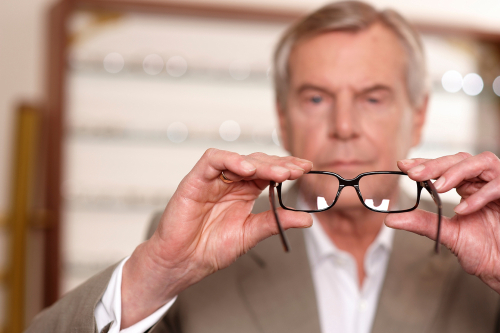7 Signs You May Want to Consider Cataract Surgery

Are you wondering if you may have cataracts? Often, if your cataracts are in the early stages, your eye doctor won’t recommend having them removed until they begin to affect your vision.
Fortunately, cataracts take years to advance, meaning you might not need surgery for years. How can you tell if it’s time to consider cataract surgery? Keep reading for 7 signs you should watch out for if you’re worried about cataracts!
1. Increased Sensitivity to Light
When you have advanced cataracts, light from the sun and other sources of light can become incredibly painful. This can make going outside quite uncomfortable.
Visit your eye doctor if you find you’ve become more sensitive to light.
2. Frequently Changing Your Prescription
Do you regularly need stronger contacts or glasses? If your prescription keeps fluctuating and doesn’t stop changing, this is another symptom that you may have cataracts.
If it is cataracts, updating your prescription will not make the problem go away. With time, your prescription glasses or contacts will no longer correct your vision.
When that happens, the only solution is to have cataract surgery, which will restore your clear vision.
3. Double Vision
As cataracts develop, you might suddenly experience double vision in one eye. Living with double vision can make completing everyday tasks quite challenging.
If you have double vision, you should contact your eye doctor right away.
4. Blurry Vision
Have you noticed you constantly want to clean your glasses so that you can see clearly? It could be an indication that you have cataracts that are worsening.
As your cataracts mature, they cause blurry vision. Unfortunately, blurry vision increases your likelihood of injuring yourself or getting into accidents.
Schedule an appointment with your ophthalmologist to know whether it’s time to have cataract surgery.
5. You Find it Harder to Drive at Night
Cataracts can interfere with your ability to read road signs, in addition to creating unbearable glares and halos. Seeing glare and halos becomes most apparent when you’re driving at night.
Although driving means independence for many people, it can become dangerous when your vision is affected. For instance, with a cataract, the headlights of oncoming cars may be blinding, making you a hazard on the road.
If at some point you’re having trouble with nighttime driving, it’s essential to talk to your ophthalmologist to keep yourself and others on the road safe.
6. You Require More Light
If performing routine, everyday activities while using a standard amount of light becomes more challenging, that could signal cataracts. Initially, stronger light may help, but as your cataracts develop, using more light will no longer be effective.
For this reason, you need to book an appointment with your ophthalmologist as soon as possible.
7. Everything Has a Brown or Yellow Tint
Another tell-tale sign of cataracts is faded colors that seem to have a yellowish or brownish tint. This can make it difficult to read or even tell some colors apart.
The only treatment for cataracts is surgery. Once the natural lens is removed and replaced with an artificial one, you can start seeing a world that’s full of vibrant colors once again.
Best in Class Cataract Surgery Center
It’s essential to have a cataract screening to confirm whether you need to have cataract surgery. Schedule your cataract screening with Dr. Farbowitz at Short Hills Ophthalmology in Clifton and Short Hills, NJ, today!



